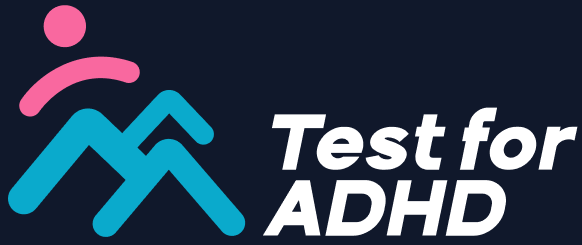How Adult ADHD Is Diagnosed: What You Need to Know
If you suspect you might have Attention-Deficit/Hyperactivity Disorder (ADHD) as an adult, you’re not alone. Many adults live with undiagnosed ADHD, impacting various aspects of their lives. But how exactly is adult ADHD diagnosed? Understanding the process can help you prepare and navigate your journey toward clarity and support.
The Importance of a Professional Diagnosis
While online quizzes and personal observations can be a starting point, a formal diagnosis of ADHD in adults must come from a qualified healthcare professional. This is crucial for several reasons:
- Accuracy: ADHD symptoms can overlap with other conditions (anxiety, depression, sleep disorders), and a professional can accurately differentiate.
- Treatment Options: A diagnosis opens the door to effective, evidence-based treatments, including medication, therapy, and lifestyle adjustments.
- Validation: Receiving a diagnosis can provide immense relief and validation, helping you understand your past experiences and move forward with a clearer path.
Who Can Diagnose Adult ADHD?
Typically, adult ADHD is diagnosed by:
- Psychiatrists: Medical doctors specializing in mental health. They can diagnose and prescribe medication.
- Psychologists: Professionals trained in mental health assessment and therapy. They can diagnose but cannot prescribe medication (though they often work collaboratively with psychiatrists).
- Neurologists: While less common for primary diagnosis, neurologists may be involved, especially if other neurological conditions are suspected.
- Specialized ADHD Clinics: Some clinics focus specifically on ADHD diagnosis and treatment, offering a multidisciplinary approach.
The Diagnostic Process: What to Expect
The diagnostic process for adult ADHD is comprehensive and usually involves several steps:
- Initial Consultation and Medical History: Your healthcare provider will start by taking a detailed medical and personal history. This includes:
- Childhood History: They will ask about your symptoms in childhood, as ADHD is a neurodevelopmental disorder that typically begins in early life. This might involve reviewing old school reports or speaking with family members (with your consent).
- Current Symptoms: A thorough discussion of your current challenges related to inattention, hyperactivity, and impulsivity in various settings (work, relationships, home life).
- Impact on Daily Life: How these symptoms affect your daily functioning, work performance, relationships, and overall well-being.
- Family History: Whether there’s a family history of ADHD or other mental health conditions.
- Symptom Checklists and Rating Scales: You will likely complete standardized questionnaires and rating scales designed to assess ADHD symptoms. These tools, such as the Adult ADHD Self-Report Scale (ASRS) or Conners Adult ADHD Rating Scales (CAARS), help quantify symptom severity and provide a structured way to evaluate diagnostic criteria.
- Clinical Interview: The professional will conduct an in-depth interview to explore your experiences further. They will look for patterns of behavior consistent with ADHD criteria outlined in the Diagnostic and Statistical Manual of Mental Disorders (DSM-5), the standard guide used by mental health professionals.
- Ruling Out Other Conditions: As mentioned, many conditions can mimic ADHD symptoms. Your doctor will likely ask about or test for:
- Anxiety Disorders: Generalized anxiety, panic disorder.
- Mood Disorders: Depression, bipolar disorder.
- Sleep Disorders: Insomnia, sleep apnea.
- Thyroid Issues or Other Medical Conditions: Which can sometimes present with similar symptoms.
- Substance Use: Which can impact cognitive function.
- Information from Others (Optional but Recommended): With your permission, your clinician might seek input from people who know you well, such as a partner, close friend, or family member. Their observations can provide valuable insights into your behaviors and challenges, offering a more complete picture.
Diagnostic Criteria (Based on DSM-5)
For an adult ADHD diagnosis, the following general criteria must be met:
- Persistent Pattern of Symptoms: You must exhibit a persistent pattern of inattention and/or hyperactivity-impulsivity that interferes with functioning or development.
- Onset in Childhood: Several inattentive or hyperactive-impulsive symptoms must have been present before age 12 years.
- Impairment in Multiple Settings: Clear evidence that the symptoms interfere with, or reduce the quality of, social, academic, or occupational functioning.
- Symptoms Not Better Explained: The symptoms are not better explained by another mental disorder (e.g., a mood disorder, anxiety disorder, dissociative disorder, personality disorder, substance intoxication or withdrawal).
- Specific Symptom Count:
- For adults, at least five symptoms of inattention and/or five symptoms of hyperactivity-impulsivity must be present.
- Examples of inattention: often fails to give close attention to details, has difficulty sustaining attention, often does not seem to listen, often loses things necessary for tasks.
- Examples of hyperactivity-impulsivity: often fidgets, often leaves seat, often talks excessively, often interrupts others.
After the Diagnosis: What’s Next?
If you receive an ADHD diagnosis, your healthcare provider will discuss treatment options tailored to your specific needs. This might include:
- Medication: Stimulant or non-stimulant medications can be highly effective.
- Therapy: Cognitive Behavioral Therapy (CBT) can help develop coping strategies.
- Coaching: ADHD coaching can provide practical tools for organization and time management.
- Lifestyle Adjustments: Diet, exercise, and sleep hygiene play a crucial role.
Receiving an adult ADHD diagnosis is a significant step towards understanding yourself better and finding effective ways to manage your symptoms. Don’t hesitate to seek professional help if you suspect you might have ADHD.



